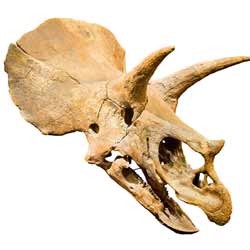Paleontologist Careers
Do dinosaurs interest you? Do you wonder how humans evolved from primates? Are you keen to learn about catastrophic events that happened long ago? If so, you need to learn more about paleontology.
Paleontologists are scientists who study the history of life on earth. They locate, identify, assemble, and study the fossil remains of extinct plants, animals, organisms, and bacteria to provide a snapshot of Earth’s organic and inorganic past. Fossils from prehistoric or geological times are the keys to making discoveries about ancient life on our planet.

Fossils provide insights into our world about evolution, organism interaction, geologic processes, climate change, mass extinctions, and catastrophic events. This information not only provides a better understanding of past life on Earth, but it can also help to forecast for current and future events.
Paleontologists split their time between office work, laboratories, and fieldwork. Fieldwork takes these scientists to remote and wild destinations to search for dinosaur bones or ancient plants that have been fossilized. Paleontologists use tools like scanners, picks, drills, chisels, shovels, brushes, and even computers to help locate fossils in the field.
Those fossils may be either body or trace fossils. Body fossils are typically bones or body parts, while trace fossils are remnants of tracks or traces of organisms. Whatever type of fossil it is, it is very valuable to the scientific community. The utmost care must be taken in extraction, transportation, and preservation of a million year old fragile fossil. Once the fossil is back in a lab it is studied in depth and if possible it will ultimately be assembled for display in a museum for the curious public.
As scientists, paleontologists write articles about their work and publish their research to share with the paleontology world. A new discovery about the evolution of mammals, an insight into the diets of single celled organism, or a new finding about the lifestyle of dinosaurs is important to share and will help establish a paleontologist’s credibility.
Paleontology is a unique scientific niche that combines physics, geology, biology, and chemistry – so a strong academic and scientific background is important. To become a paleontologist you will need at least a bachelor’s degree in geology or earth science for entry-level jobs. The majority of paleontology jobs require a master’s or doctoral degree.
During their training, paleontologists focus on a niche that interests them such as vertebrate, invertebrate, micropaleontology, paleobotany, taphonomy, biostratigraphy, or paleoecology. Based on their choice, they build their experience by participating in field work, helping with research projects, networking, joining scientific associations, finding internships, volunteering at museums, attending conferences, reading journals, or publishing papers.
The majority of paleontologists work for colleges and universities where they teach and research. There are also paleontology jobs with museums, research institutes, oil companies, and even with government agencies like the National Park Service or Bureau of Land Management. Approximately 5,000 paleontologists work in the US.
The Bureau of Labor Statistics considers paleontology to be a subset of the geosciences. Based on BLS data, a paleontologist will make $90,890 per year or $43.70 per hour on average. The field is expected to grow by 16% by 2022. If you have a curious mind and are fascinated by the history of life on Earth, why not pursue a career in paleontology?
Paleontology is like solving an ancient jigsaw puzzle. You have to be a detective to find the parts and discover how they all fit together. What you find has the potential to change the way we see our planet. If this sounds like fun for you, you should become a paleontologist.
Quick Facts About Paleontologist Careers
Job Title: Paleontologist
Office: Office, Lab, and Field
Description: Study the history of life on earth
Certifications/Education: Master’s of Doctoral Degree
Necessary Skills: Research oriented, Strong science and academic background
Potential Employers: Universities, Government Agencies, Museums
Pay: $90,890 per year or $43.70 per hour

